Global affairs / Central and eastern Europe
The shape of things to come
Yes, they have economic problems and some rocky politics but the old Eastern bloc nations are poised to set the European agenda in 2017. From defence to pinching City of London jobs, the Visegrad Group is shaping up to shake up the year ahead.
The celebrations in 2004 that marked the largest-ever expansion of the European Union spread, just as the newly enlarged union did, from west to east. There were concerts in Berlin, Warsaw and Valletta and a reunification ceremony took place on the Italo-Slovenian border between two towns that had been divided by a fence since the Second World War. On the German-Polish border fireworks were let off, accompanied by Beethoven’s “Ode to Joy”, as the 12-starred blue-and-yellow EU flag was hoisted into the night sky. “Europeans are no longer kept apart by artificial ideological barriers,” proclaimed then European Commission president Romano Prodi.
With the fall of the Berlin Wall and the collapse of the Soviet Union, Europe’s former communist states were on a path towards liberal democracy and free-market capitalism. EU membership was the confirmation that they had moved out of the orbit of Moscow and joined the West.
Over the following decade billions of euros in EU funds were spent each year boosting their economies, while membership of the single market led to a period of sustained growth: Poland’s GDP per capita, for instance, has doubled from $6,600 in 2004 to about $14,000 in 2013. Millions have also grown their own income by taking advantage of the EU’s freedom of movement and living – usually temporarily – in richer EU nations, often doing jobs that locals would rather not.
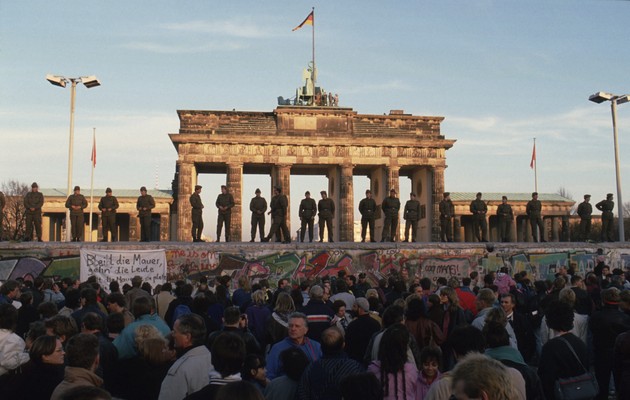
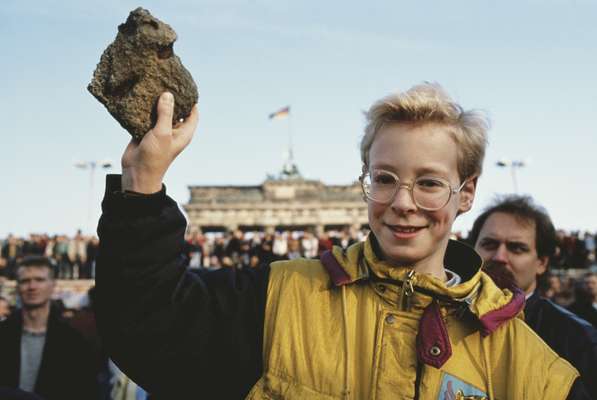
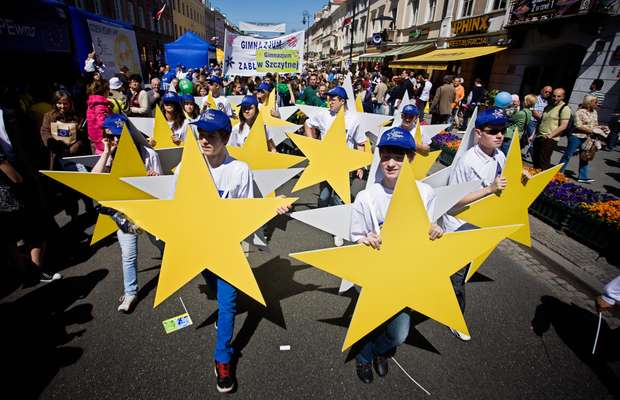
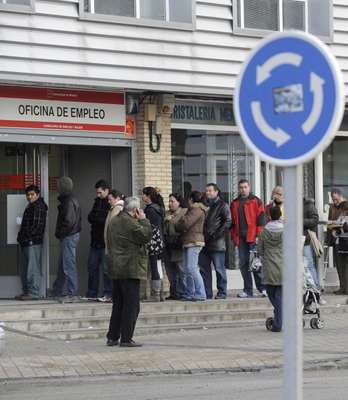
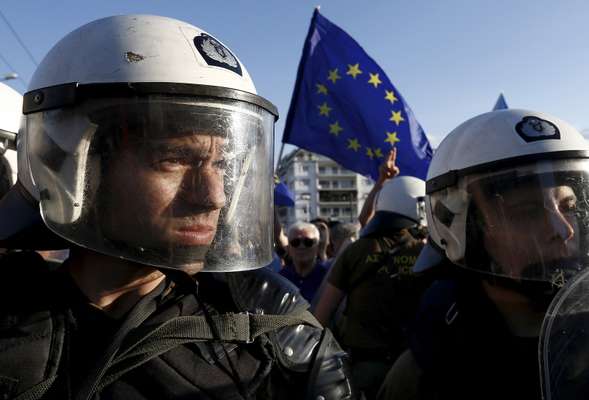

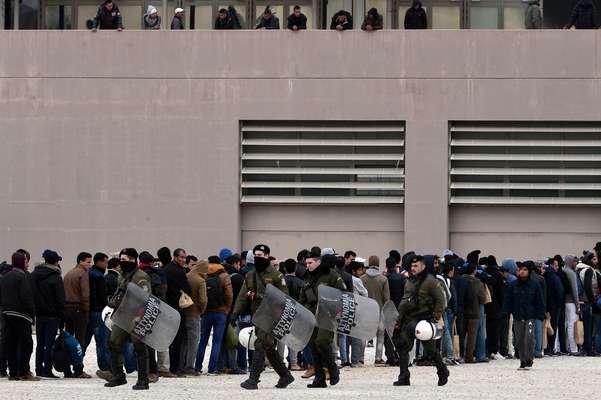
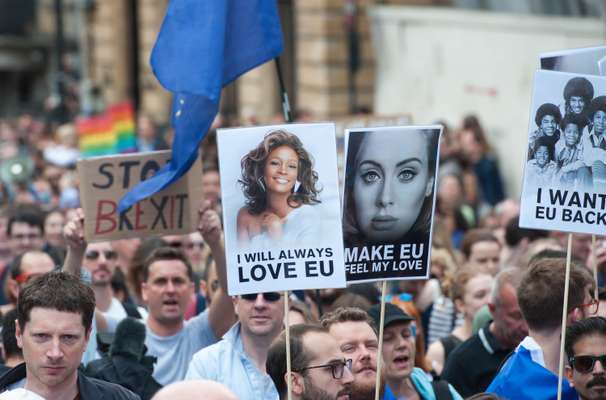
But in recent years much of the post-accession euphoria has evaporated. The EU they joined was prosperous and, on the whole, united. That’s no longer the case. Europe’s financial crisis, which resulted in emergency funding for Ireland, Portugal, Spain, Italy and Greece, frustrated many of the newer members. They were further annoyed by the push from Germany, Italy and Greece to accept refugees and migrants arriving from Africa and the Middle East. Anti-refugee sentiment has been strong in central and eastern Europe, with many nations refusing to take even a small number of the million or so refugees and migrants who have made the journey to Europe since 2014.
A pro-EU government in Poland has been replaced by a far more nationalist regime. In Hungary, Viktor Orban has dragged the nation further to the right and spoken of his desire to end liberal democracy and replace it with an “illiberal state”. The Slovaks have, like the Hungarians, increased ties with Vladimir Putin’s Russia, while in the Czech Republic the population has become increasingly anti-EU.
These four nations, which formed a loose coalition known as the Visegrad Group in the 1990s, have helped to shift the balance of power in the EU eastwards. While all four governments have different views – the current Polish leadership is vehemently anti-Putin, for example – they have become an effective bloc within the EU, generally pushing for a looser union of nation states that gives more power to individual governments.
Some of the longer-standing EU members also now consider the 2004 accession in less glowing terms. Western and northern European nations have not just had to foot the bill, they’ve also lost out on funds that previously would have been theirs. The EU’s Objective One funding, aimed at the union’s poorest regions, used to be spread across the continent – even Germany had six regions eligible for funding. That all changed with expansion as the vast majority of funding moved east. Their economies were so far behind the rest of the union that the vast majority of regions that had previously received funding no longer did.
With the UK leaving the EU and with France and Germany preoccupied by general elections, 2017 is likely to see the Visegrad Four exert more power over the rest of the union than ever before. Despite the EU’s problems – and despite the wilder anti-Brussels comments of some of the Visegrad Four’s leaders – most voters in the region are still supportive of their nations’ membership. They see their future in the union, possibly even reshaping it in their image.
There was an assumption in established EU nations in 2004 that “they” were going to become more like “us”. But just over a decade on, are “we” about to become more like “them”?

Poland
Population: 38.5 million
GDP (per capita): $12,494.46
Unemployment rate: 7.5 per cent
Since joining the EU in 2004, Poland has been a country to be reckoned with. The nation of 38.5 million is the bloc’s sixth-largest economy – fifth once Britain leaves. Yet things have been stirred up since the right-wing Law and Justice (PiS) party came to power in October 2015. While not opposed to EU membership, the party has adopted a more defiant stance to its centrist predecessor. Its leader Jaroslaw Kaczynski sees Brexit as an opportunity to reform the EU, shifting power back towards member states.
The past year has been rocky: in January 2016 the European Commission launched a probe into rule of law in Poland, its first ever. If it continues, Poland’s voting rights in the EU could be suspended but Warsaw believes that the spat can be transcended in 2017. Then there’s the former Polish prime minister and current president of the European Council in Brussels, Donald Tusk, whom Kaczynski has suggested Warsaw will not back for reappointment when his term ends in May.
Brexit will bring opportunities and challenges for Warsaw. International banks have already opened back offices in Warsaw and Poznan – now Poland is encouraging them to bring more frontline bankers. “Poland could be a champion of the free market and thus an ally of Germany, partly replacing Britain,” says Piotr Buras, head of the Warsaw office of the European Council on Foreign Relations. However, “the prevalence of domestic policy in the PiS government’s thinking makes this policy inconsistent”. Berlin and Paris are taking note.
The economy is run by Mateusz Morawiecki, a 48-year-old former bank CEO who is at once deputy prime minister, minister of economic development and, since September 2016, minister of finance. In the spring of the same year he unveiled his “Morawiecki Plan”, a five-pillar economic roadmap for the next 25 years. He has also visited London to court UK investors.
Poland’s attitude to outsiders is another challenge: the government has refused to take in refugees as part of the EU’s relocation programme. However, the number of foreign workers in Poland is rising. In the first 10 months of 2016 the number of people applying to legalise their stay was up 30 per cent year on year; mostly people from neighbouring Ukraine. With a rapidly ageing population and gaps in the labour market, this is good news for the country. “Poland will not catch up with the West without immigration,” says economist Marcin Piatkowski. “It will grow old before it grows rich.”
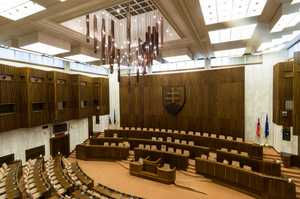
Slovakia
Population: 5.5 million
GDP (per capita): $15,962.57
Unemployment rate: 11.5 per cent
Bratislava is a mash-up of eras: the Old Town evokes the grandeur of the Austro-Hungarian empire yet within sight is the Novy Most bridge over the Danube, built in 1972 and topped with a structure that looks like a ufo. Under the imposing Bratislava Castle, parts of which date back to the 13th century, is the gleaming River Park complex and a few kilometres away is the glassy new terminal at Bratislava Airport, finished in 2012.
The mix of old and new reflects the many facets of this small country – but also its fragments. The March 2016 elections saw eight divergent parties, including two to the far right, gain or hold seats in parliament. In part this was a reaction to European migration, which indicates a larger trend. “Migration is one issue about which the Visegrad countries could come together,” says Aneta Vilagi, a political scientist at Bratislava’s Comenius University. “But we have different positions on most issues: Slovakia and Hungary are more pro-Russia, the Czech Republic and Poland are anti-Russia.”
Slovakia’s economy appears to be heading in the right direction. Its strong automotive sector provides 200,000 jobs and the country is the world’s biggest car producer per capita: in addition to the longstanding presence of Volkswagen, Kia and Peugeot, Jaguar Land Rover is opening a plant here in 2018. In 2015 the country saw accelerated economic growth due to EU funding but also increasing domestic consumption, hopefully pushing forward last year’s 3 per cent growth. Unemployment is also at a six-year low.
Vilagi points out that corruption within the Slovakian establishment remains and, looking to the future, educational reform is needed to assure qualified workers. The latter is a priority.
Bratislava was once a gateway between Budapest, Prague and Vienna. Then it was a forgotten capital near the Iron Curtain; now Slovakia’s mission may be to gain its populace’s trust and continue to build its economy. “In Andrej Kiska we have our first truly independent president with an entrepreneurial background and non-communist past,” says Juraj Vaculik, CEO of Aeromobil, which has developed a flying car. “However, we still struggle with extremist political parties.” He also mentions that a few of Aeromobil’s employees and board members – UK citizens – are concerned about Brexit. “But even if there were fragmentation within the EU, Slovakia would be in an integrative position,” says Vilagi. “We’re a small country so it’s beneficial for us to be in a larger market.”

Hungary
Population: 9.9 million
GDP (per capita): $12,259.12
Unemployment rate: 6.8 per cent
Hungary is one of the Visegrad group’s smaller members but prime minister Viktor Orban’s independent streak – he describes himself as a “heretic” among EU leaders – has granted it a leading role in shaping the four countries into a formidable political bloc. The one-time liberal Hungarian leader turned EU critic is the group’s longest-serving prime minister and his opposition to the German-led EU consensus on migration, EU reform and multiculturalism has drawn attention to the Visegrad bloc’s increasing assertiveness.
In a speech in October 2016 marking the 60th anniversary of Hungary’s anti-Soviet revolution he said that the task of freedom-loving people is to “save Brussels from Sovietisation”. This fiery language has brought Hungary’s leader to international prominence but would garner less attention were it not for political co-ordination with his V4 partners. Operating as an informal caucus has established the bloc as a significant political force in an otherwise fragmented club of 28.
“Visegrad co-operation is now the most effective alliance within the EU,” says Hungarian foreign minister Peter Szijjarto. “It works because we’ve got each other’s backs. If we presented our positions one by one no one would care.”
At the core of Visegrad’s success is the strength of its members, Hungary included. Orban’s government is heading into its eighth successive year in office with a commanding parliamentary majority and a tight grip on state institutions. His radical economic measures since 2010 – nationalising compulsory private pension funds and slapping sector taxes on banks, media, energy and retail companies – have alarmed some but reduced public debt below 75 per cent of gdp. The EU now forecasts that Hungary’s economy will have expanded by 2.1 per cent in 2016 and will grow by 2.6 per cent in 2017, well above the European average.
However, behind the warm diplomatic words lie political faultlines. Czech and Slovak leaders don’t share Orban’s enthusiasm for rewriting the EU’s constitutional rulebook and are concerned by Poland and Hungary’s attacks on liberal western political values.
Until now differences within the group have been managed pragmatically. “One area where we have different approaches is Russia,” says Szijjarto. “But this doesn’t create a conflict.”
What unites the four in the debate on Europe’s future, says Szijjarto, is shared resistance to granting more power to EU institutions: “The stronger the member states are, the stronger the EU will be.”
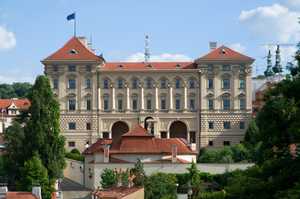
Czech Republic
Population: 10.5 million
GDP (per capita): $17,231.28
Unemployment rate: 5 per cent
With its classical Habsburg architecture and chequered past, the grandiose foreign ministry building in Prague seems to embody the Czech Republic’s European conundrum: caught between a desire for self-determination and the feeling that it will always be denied by bigger foreign powers.
Here diplomats such as Jakub Durr, the Czech deputy foreign minister, strive to sell the benefits of EU membership to a public that is among the continent’s most Eurosceptic. Polls show that support for the bloc is lower here than in Slovakia, Poland and Hungary. Negative attitudes have been fanned by the anti-Brussels rhetoric of the country’s most recent presidents, Vaclav Klaus and the incumbent Milos Zeman, who has peddled the notion of a Brexit-style referendum.
Durr, a former deputy of the Czech mission to the EU, insists that a membership referendum is unlikely but says that there is resentment at decisions being taken “in a foreign city with the regular people’s voice not being listened to”.
This is a familiar feeling throughout Czech history: before 1918 Czechs (and Slovaks) chafed against Habsburg rule from Vienna under the Austro-Hungarian empire; after the 1939 Nazi invasion the country was subject to foreign rule from Berlin; and after a Soviet-backed communist takeover in 1948 many in the then Czechoslovakia felt that they were subjects of an alien regime installed by Moscow.
All three regimes used the foreign ministry building as a base from which to project their power. Now it is the EU flag that flies atop the imposing structure, perhaps subconsciously evoking the feeling in the mindset of many Czechs that they are still governed from afar.
Radko Hokovsky, director of the Prague-based European Values think-tank, says that such attitudes are driven by a “Munich complex”, stemming from the notorious 1938 Munich agreement struck with Hitler by the UK and France that carved up pre-Second World War Czechoslovakia. “There is a lack of self-confidence,” he says. “Czechs feel that they are not big enough to influence EU decisions.”
Yet the negativity overlooks a reality that politicians and economists agree on: that Czech EU membership since its accession in 2004 has been a success. “We can look at any aspect of the Czech economy,” says David Marek, chief economist with Deloitte in Prague, “from exports to GDP, employment and overall living standards, and we can see that for companies and ordinary people it is a big step ahead.”


